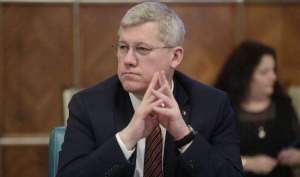France is on the boil again on July 14, after the political situation became volatile following President Emmanuel Macron's decision to dissolve the National Assembly and call early parliamentary elections for June 30 and July 7, 2024. President Macron announced his decision after his party, Ensemble, registered a stinging failure in the European Parliament elections on June 9, when the far-right Rassemblement National political formation, led by Marine Le Pen, won 32% of the votes, and the far-left political party, France Inssoumise, led by Jean Luc Melenchon, ranked fourth, with 9.2% of the vote.
Hoping to cut the wings of the two French political extremes, on the evening of June 9, after learning the result of the French elections for the European Parliament, Emmanuel Macron dissolved the National Assembly, three years before the end of the mandate, and called parliamentary elections on June 30 and July 7, 2024. Only the bill at home was not equal to the one at the fair. More precisely, following the voting on June 30, the alliance between Marine Le Pen's party - Rassemblement National and the Republican Party led by Eric Ciotti came first, with 33.1% of the votes, followed by the left-wing Nouveau Front Populaire alliance, with 28%, made up of the Socialist Party and France Insoumisse, and the coalition of presidential parties led by Ensemble had only 20%. In the first round, participation in the parliamentary elections was 66.7%.
Faced with the danger of extremists coming to power, Emmanuel Macron had discussions with the leaders of the political formations in the government arch, as well as with those of the Socialist Party and France Insoumisse, and it was decided that in most constituencies, the candidates in the 3rd place withdraws so that those in 2nd or 1st place get more votes than the remaining candidates in the race for the National Assembly and the Republican Party. The tactics set up by Macron paid off, so that in the second round, from July 7, the New Popular Front (alliance of left and far left parties) won the parliamentary elections, in front of the presidential coalition led by Ensemble and Rassemblement National. The political left obtained in the second round of parliamentary elections 7,005,381 votes (25.68%), a result that allows the New Popular Front to occupy 178 seats in the French Parliament, 32 of which were won in the first round, from June 30.
Ensemble, Emmanuel Macron's formation, and its allies collected 6,314,424 votes (23.15%) in the second round of parliamentary elections, obtaining 150 elected nationally, of which two were elected in the first round on June 30.
Following the July 7 elections, Rassemblement National obtained 126 mandates, of which 37 were won in the first round. Votes to which must be added the 1,364,964 obtained by candidates allied to Eric Ciotti's Republicans, which gives 17 additional seats. The Republican candidates who did not want to join the far-right alliance obtained 1,474,650 votes, or 5.41% of the votes cast. They obtained 39 seats, including one already won on June 30.
Following the victory of the left and far-left parties, Jean Luc Melenchon, the leader of France Insoumisse stated that the prime minister's seat must return to his political formation, but it is hard to believe that this will happen as long as the Party is in the game Socialist. However, the negotiations for the appointment of a prime minister to form a new government are expected to be very difficult between the political left, the extreme left and the center and center-right parties in France, a fact that has led President Emmanuel Macron not to accept the resignation of the prime minister in office Gabriel Attal, until the completion of these negotiations and the shaping of the future governing alliance.
It is certain that one of the hypotheses emerging in France is that Emmanuel Macron will accept the resignation of the Attal government on July 17, i.e. in time to complete the constitution of the groups in the National Assembly and participate in the election of its president on July 18, in the first session.
Until then, political France is on the boil, governing alliances are made and broken, especially since the programs of the political parties are so contradictory in terms of pension reform, the tax system, social assistance and migration.



























































